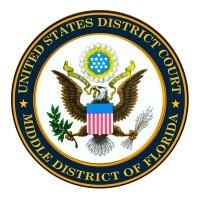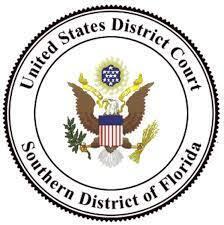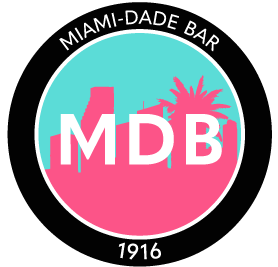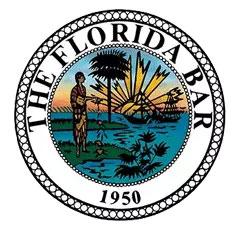Downtown Miami Probate Litigation Lawyers
Knowledgeable and Trusted Probate Litigation Lawyers In Downtown Miami, FL
The passing of a family member or loved one is an emotional and distressing time, as loved ones grieve while also managing the division of the descendant's estate. The probate administration process can bring many challenges, including disputes between family members, questions over the will's validity, and substantial claims from creditors. Despite best efforts, disputes can still arise, even when a creator has diligently organized their will through estate planning services.
The probate administration process and estate division can significantly impact the lives of beneficiaries and interested parties. If you have concerns about how the probate process is managed or doubts about the validity of a will, a probate lawsuit can help. Through litigation, you can dispute the legality of a will or challenge how a personal representative oversees the division of assets to ensure that your loved one's wishes are respected.
If something does not feel right, do not ignore your concerns. Seek legal advice as quickly as possible to explore whether litigation is an option for you. Do not hesitate. The time window to file a dispute in the probate process is short. If you miss this window, you may lose the right to contest.
At Miami Family Law Group, PLLC, our team of highly skilled probate attorneys has been supporting residents of Miami, FL with legal services regarding probate matters for over 20 years. We have the necessary skills and resources to successfully fight your case and secure a fair and successful outcome for you and your family. Take the first step towards protecting your interests today. To discuss your situation and how probate litigation can help, contact us at 305-520-7874.
The Probate Administration Process in Miami
When anyone owning assets dies in Florida, a legal process is often required to transfer the assets to their beneficiaries and resolve any outstanding debts. This process is known as probate administration. The administration process can be shortened through summary administration. However, in most situations, a thorough formal administration process is required. Typically, a summary administration is only applicable for small estates or circumstances where the descendant has been dead for over two years.
Formal Administration
All estates, regardless of value, are eligible for formal administration. However, formal administration is a requirement in the State of Florida if the estate value exceeds $75,000 and less than two years have passed since a person's death. Formal probate administration requires a personal representative, whereas summary administration does not. A personal representative is appointed to manage the division of the estate in line with the last will and testament and settle any debts.
Other situations in which formal administration may be required include if part of the estate is still unknown, if the descendant died owing money, if the estate or descendants may be involved in litigation, if the will is contested, or if the beneficiaries do not agree to court procedures.
Justification to Dispute a Will
Anyone with a potential interest in an estate can be involved in probate litigation. This can include friends and family, a spouse, the personal representative, or any beneficiary who disputes the claims of others or the division of the estate.
Florida law outlines that in order to be valid, a will must:
- Be in writing.
- Be signed by the person writing the will.
- Be signed in the presence of two impartial witnesses.
- The individual signing the will must be mentally competent and at least 18 years old.
An individual must have legal standing to object to a will. Grounds for objection in Florida include the following:
- The will was signed under duress - If a beneficiary believes a will was signed while the creator feared for their safety or the safety of others, this could be grounds to contest a will. A signing under duress may be suspected in situations involving a sudden drastic change to beneficiaries, such as the inclusion of a caregiver into the will. Situations involving duress can be challenging to prove in court, and they will require experienced legal representation.
- Undue influence on the descendant - Undue influence differs from duress in that the creator of the will does not need to have feared for their safety. Instead, a beneficiary may have wrongfully convinced or manipulated them into leaving them a portion of the estate.
- The will does not meet the legal requirements - Florida law has strict regulations for a will to be considered legally valid. If a will does not meet these requirements—for example, if it was not signed in the presence of two witnesses—it can be disputed.
- Fraud - If an interested party believes that a will was changed fraudulently—for example, the inclusion of a new and unexpected beneficiary—this may be grounds to challenge the legitimacy of the will.
- A lack of capacity - If an individual believes that, at the time of creation, the will creator did not have the mental capacity to fully comprehend their actions, this could be grounds for a dispute. A will is a legally binding contract. For any will to be valid in the eyes of the law, any signatory must be of sound mind.
Common Reasons for Probate Litigation in Downtown Miami
Typically, an individual may pursue litigation if they believe they have been unfairly treated, that the will was written under undue influence, or if issues arise with the actions of the personal representative. Discovery of a later will or suspicions of fraud may also justify litigation.
If you are experiencing a dispute in an estate, seek legal assistance from a probate lawyer to determine if legal action could be an option for you to protect yourself and your rights.
Exclusion of Family Members
Exclusion of family members in a will or treating children unfairly is often grounds for dispute during the probate process. If a family member is excluded from the will, this is likely to result in litigation. Assigning more assets to step-children over biological children, for example, is likely to cause tension amongst beneficiaries.
In these situations, family members may argue that the descendant was under undue influence from other beneficiaries to make decisions that resulted in them receiving a larger share of the estate at the expense of others.
Prenuptial Agreements
In some situations, the death of one spouse may cause the other spouse to question the validity of any existing prenuptial agreements the couple had in place. Often, the validity is further questioned if the value of a spouse's assets has increased substantially between the signing of the prenuptial agreement and the spouse's death.
Similarly, if a defendant had multiple marriages, this can also lead to disputes. This could be caused by tension between beneficiaries or problems with estate documents due to the numerous revisions required for multiple marriages.
Incorrect Execution
Florida Statutes 732.502 outlines the requirements for a will to be considered valid in Florida. The Statute includes witness requirements and how the will must be signed. If any of these requirements are not fulfilled, the document is not valid under Florida law.
Disputes about whether a will has been executed in line with the law and whether there are any questions about the legal validity of a will can often prompt litigation. If you have concerns about the execution of a will, seek legal counsel as soon as possible. It is not always possible to challenge a will's validity once the formal probate process is complete. As such, time is of the essence to raise a dispute and start an investigation.
Creditors
Although it is often thought that the most common causes of probate litigation are disputes between estate beneficiaries and the contesting of a will, creditor claims are also a regular source of litigation during probate administration.
During the probate process, the personal representative or executor is required to notify all known or readily ascertainable creditors that the estate proceedings have begun. From this notification, a 90-day period begins during which creditors must file a claim against the estate for unpaid debts. Any valid creditor claims take priority for payment over the distribution of the estate to the beneficiaries listed in the will.
The personal representative is responsible for assessing the claims and deciding whether a claim is legitimate. A personal representative can oppose and reject claims they believe are illegitimate. In these circumstances, a creditor may take the case to court for a judge to decide.
How Do I Begin Probate Litigation?
All beneficiaries of an estate are served with a formal notice of administration. This notice informs the recipient of the decedent's death and that a will has been filed for probate. This is also the notification that any administration objections must be filed within a specified timeframe. In Florida, a beneficiary must file a formal lawsuit within 90 days of the notice of administration if they wish to contest the will.
However, an interested party does not have to wait until they receive the notification of administration to file a lawsuit. A dispute can be filed with the court any time following the descendant's death, up to 90 days after the issue of the notice.
Probate courts and probate law can be complex, with many procedures and strict timelines that must be adhered to for a successful case. For a successful dispute, evidence in the form of documents, reports, and witness testimonies must be provided to present a compelling argument to the court.
An experienced probate attorney can guide you through the process and work with you to build a strong case and secure a successful outcome. If you are considering beginning probate litigation, seek legal counsel from a skilled lawyer familiar with probate cases and the complexities of probate law.
Property Exempt From the Probate Process
Typically, all assets owned by a decedent can be subject to probate, such as bank accounts, real estate, and personal property. However, in Florida, exempt property laws are in place to protect the surviving family of the descendant, particularly during the administration of assets.
Florida residents with surviving children at the time of their death are entitled to exempt property. This property is free from all creditor claims against the estate except perfected security interests. Exempt property outlined in the Florida Probate Code includes:
- Two motor vehicles with a gross weight of under 15,000 pounds each. These vehicles must have been owned by the decedent and regularly used by the decedent or their family members as personal motor vehicles.
- Household appliances, furniture, and furnishings in the decedent's usual residence, up to a net value of $20,000.
- All death benefits for teachers and school administrators, in line with Section 112.1915 of the Florida Statute.
To utilize these exemptions from the Florida Probate Code, individuals must apply to the court for a determination of exempt property promptly following a person's death. If this is not completed by a surviving spouse or a child of the descendant within four months of the notice of administration, the rights to exempt property may not apply.
In some circumstances, exempt property allowances may not apply. For example, if a decedent specifically leaves their vehicle to someone other than their spouse or children in their will, the exempt property protection will not be applicable.
Florida law also allows for a family allowance that distributes cash to family members who were previously supported or should be supported by the decedent. The family allowance aims to avoid hardship during estate administration. A probate attorney can advise you on the specifics of your circumstances and ensure that you do not miss out on any benefits and protections outlined under the Florida Probate Code.
How Long Will Formal Administration Take?
Initially, the 90-day creditor period requires that the estate remains open for this period of time. Once this period is closed, a substantial amount of asset distribution can occur shortly after. Typically, most formal administration cases in Florida are completed within seven to nine months. However, once the personal administrator is appointed, most of the work and asset division is completed within the first few months.
In addition, parties do have the option to waive probate accountings to reduce the amount of time taken to complete the process. Probate accountings are designed to generate a financial record of the estate for all interested parties. In Florida, accounting is not legally required, and it can be waived if all parties agree. However, accounting is recommended if the administration process is complex or if there is the possibility of litigation.
The completion timeline can alter significantly if litigation is involved. Although litigation proceedings must be filed relatively shortly following the notice of administration, they can delay the process substantially. Depending on the nature of the dispute, litigation proceedings can be lengthy, particularly if the court requires expert testimony to make a judgment.
To ensure you receive a fair outcome, litigation proceedings must not be rushed. However, a skilled probate lawyer can make the process more efficient wherever possible, such as when filing paperwork, to ensure that the case does not take longer than necessary.
Do I Need a Probate Litigation Attorney?
Probate litigation in Florida is a complex process with many formal procedures that must be adhered to. After the initial petition is filed with the court, all beneficiaries must be given formal written notice to comply with legal requirements.
Similarly, the probate court has strict requirements for filing motions and pleadings. Failure to adhere to any of the complex probate litigation procedures outlined by the court may result in a case dismissal. A probate attorney can assist you in navigating the litigation requirements and ensure that your case is not dismissed due to a procedural error.
Legal representation is crucial in probate litigation cases to protect your rights and fight for what is fair. If you are concerned that your loved one's wishes are not accurately represented or that their estate is being mismanaged, seek legal advice from a Miami probate attorney to begin legal recourse.
Why Choose Miami Family Law Group, PLLC?
At Miami Family Law Group, PLLC, our team is comprised of some of the best probate lawyers with extensive legal experience handling complex estates. Our attorneys are highly knowledgeable in all elements of the law that you may need to successfully win a probate litigation case, including probate law, guardianship litigation, will disputes, and trust litigation.
Our law office is located in downtown Miami, and we proudly represent clients across Miami-Dade County in probate cases. Effective attorney and client communication is essential. As such, our team is fluent in both English and Spanish. We will always go the extra mile to ensure that our clients receive exceptional service and achieve the best outcome possible from their cases. We will leave no stone unturned when it comes to building a strong case and fighting for our client's rights.
Contact a Downtown Miami Probate Litigation Lawyer Today
Our probate litigation attorneys understand the far-reaching implications of the division of an estate. We know how distressing it can be to feel that you are unfairly treated or that your loved one's wishes are not respected.
At Miami Family Law Group, PLLC, we will work tirelessly to defend your rights throughout the probate process, and we will fight to ensure that you receive the settlement you deserve. Contact us today at 305-520-7874 to discuss your litigation options with a reputable downtown Miami probate lawyer.
Contact Miami Family Law Group, PLLC
Our attorneys are ready to help address your legal needs. Schedule an appointment by calling 305-520-7874 or contacting us online.










